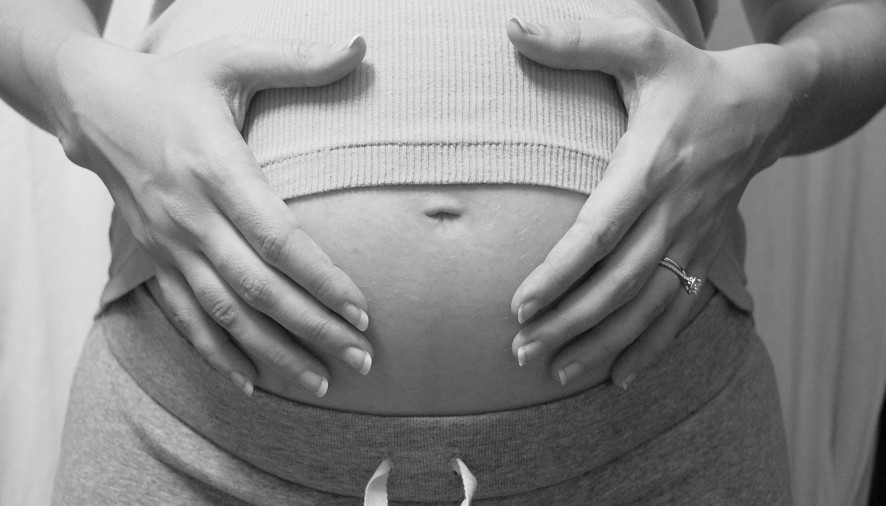The UK’s first womb transplant has been given the go ahead by the NHS health research authority as part of a clinical trial, due to start next year. 10 women have been selected to receive the surgery following the success of the Swedish trial undertaken in 2014. The team of surgeons, lead by Dr Richard Smith – a consultant gynaecologist at the Queen Charlottes and Chelsea hospital, hope to start the embryo implantations as early as next spring, with the first UK baby from a transplanted womb set to be born in two years time.
Around 1 in 7000 women is born without a functioning womb; a result of disorders, such as Mayer Rokitansky Kuster Hauser (MRKH) syndrome, leaving women without a vagina, cervix or womb. Additionally, many more women have their wombs surgically removed during their fight with cancer. The development of this technique could offer hope to thousands of women whose only options to date have been surrogacy or adoption – they may soon have the chance to carry their own child.
Last year marked a medical first; the birth of a baby boy using a transplanted womb. The 36 year old Swedish mother, who had been born without a womb, received the transplant from a 61 year old family friend who had already given birth to two sons. The baby – dubbed a ‘medical marvel’ – was delivered by caesarean and, fittingly, given the name Vincent meaning ‘to win’ in Latin. Following this success, Dr Smith’s team has been given ethical approval to continue their research; taking it to the next level following 20 years of work on the project. Dr Smith stated, “Surrogacy is an option but it does not answer the deep desire that women have to carry their own baby. For a woman to carry her own baby – that has to be a wonderful thing.”
Around 300 applicants approached the womb transplant team, however only one third has met the team’s criteria. The new clinical trial requires women aged between 25 and 38 years with healthy ovaries and the capability to produce their own eggs. They must also be in a long term relationship and of a healthy weight.
How does it work?
The couple will first undergo IVF treatment, using the women’s egg and the partner’s sperm, to create an embryo which is then frozen. The women will then undergo a 6 hour operation to receive a womb from a donor who has been classified as brain dead but still has a beating heart. This donor choice differs from that of the original Swedish team – who used a live donor – due to the high risks involved with removing the uterus from a living donor. The recipient will then undergo 12 months of immunosuppressant drug therapy to prevent their body from rejecting the new organ. It is only when the team are sure the womb is safe from rejection that the embryo will finally be implanted.
If all is successful the baby will be born by caesarean, which prevents the donor womb from going through the strain of childbirth. After 6 months the women will be given the opportunity to try for another child, otherwise the womb will be removed. The removal of the womb reduces the risks related to continued immunosuppressant drugs use, which has been linked to an increase in infection, osteoporosis and even, in some cases, cancer.
The risks
As apposed to most transplant surgery, womb transplantation is not a lifesaving procedure; therefore the potential risks to both mother and baby must be reduced before ethical approval could be given. Following the successful births, further studies on the babies will be required to ensure no damage was caused as a result of the procedure. Additionally, questions have been raised over the use of immunosuppressant drugs and their potential to cause damage to the developing foetus. However, current examples of successful pregnancies involving the use of immunosuppressant drugs have been highlighted by Dr Smith’s and his team, resulting in their confidence in the outlined procedure. The exact details of how voluntary donors will be identified is still uncertain, however the NHS Blood and Transplant UK team say they will work with the Womb Transplant UK team to ensure the appropriate protocols are in place.
The UK trial – due to start next spring – needs to raise £500,000 before any operations can take place, but Dr Smith is optimistic. “I’ve always been an enormous optimist. The project has run with no money from the start. Somehow or other, somebody has always turned up and given us enough money to keep it going.” With just over £40,000 already donated to the project, there is a growing hope that womb transplants could prove to be a huge step forward in fertility treatment in the UK.
Amy Cleaver
Image: Flickr

